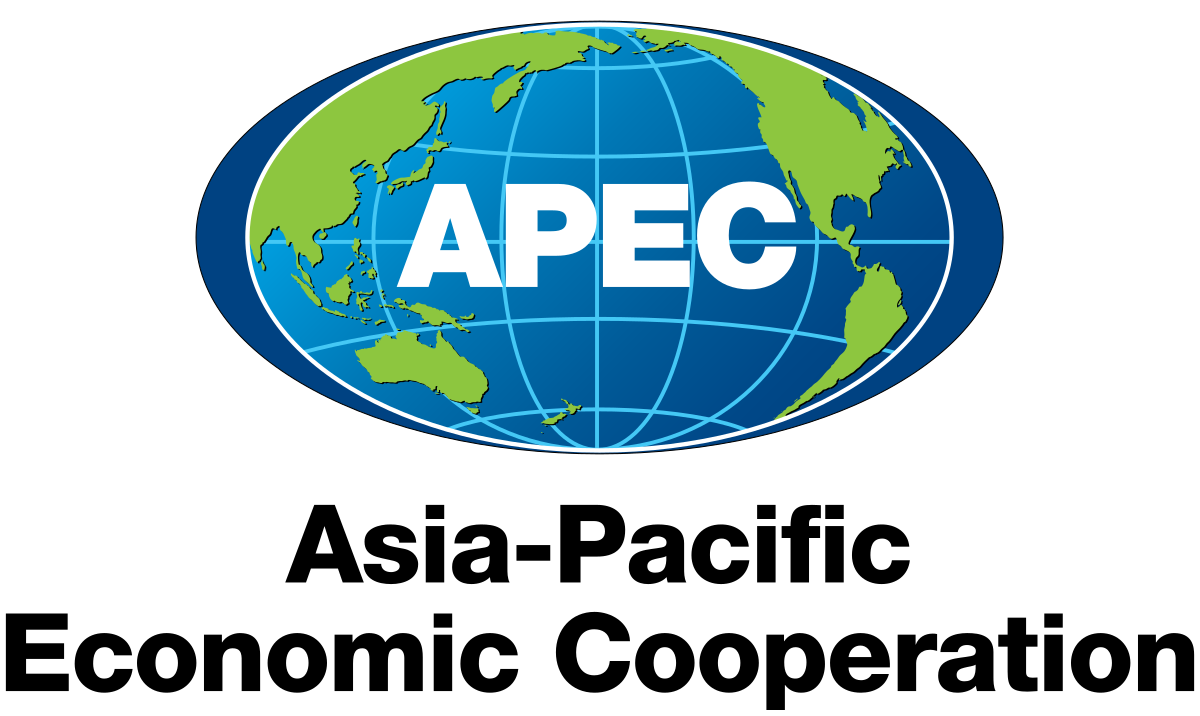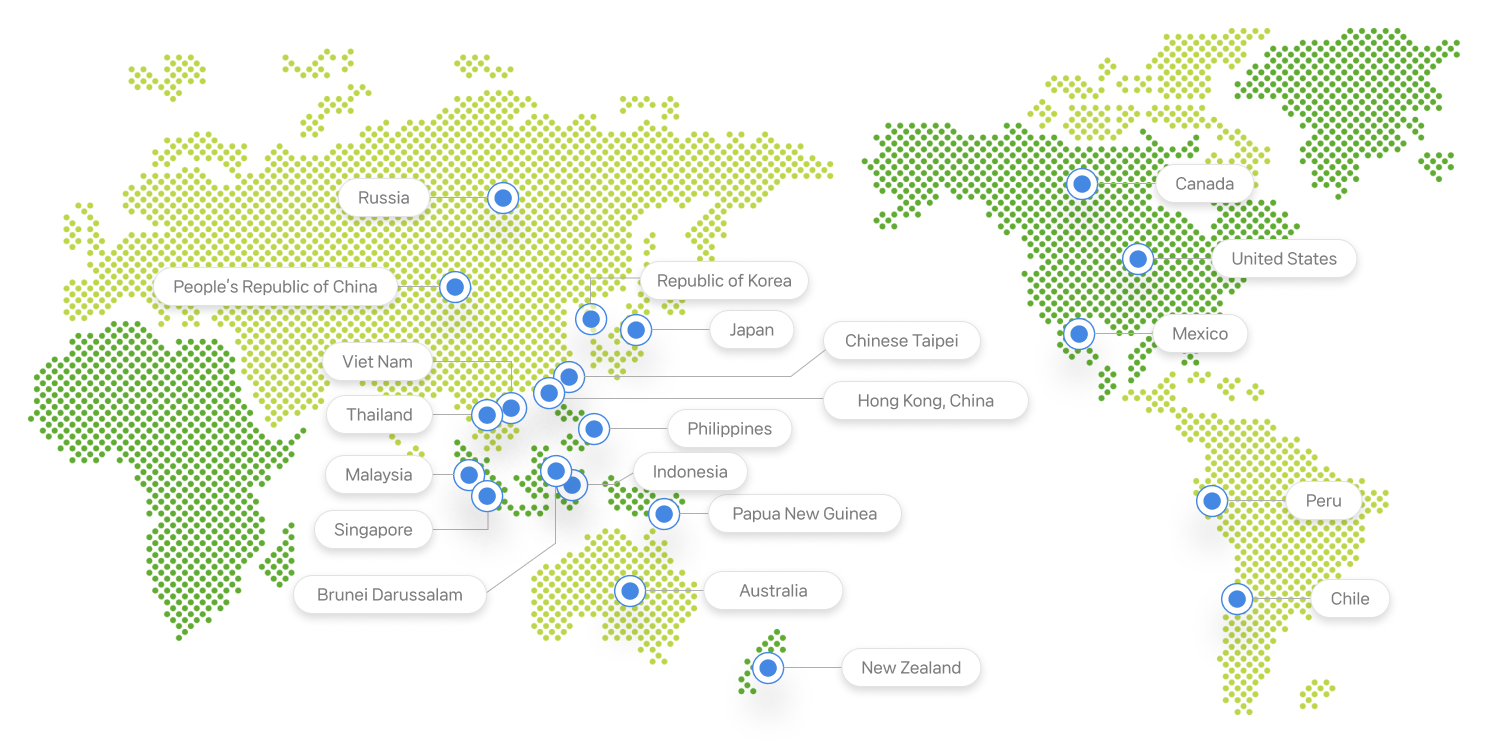APEC

What is APEC?
APEC(Asia-Pacific Economic Cooperation) is a regional economic forum established in 1989 to leverage the growing interdependence of the Asia-Pacific region. APEC’s 21 members aims to create greater prosperity for the people of the region by promoting balanced, inclusive, sustainable, innovative and secure growth and by accelerating regional economic integration.
The word ‘economies’ is used to describe APEC members because the APEC cooperative process is predominantly concerned with trade and economic issues, with members engaging with one another as economic entities.
APEC operates as a cooperative, multilateral economic and trade forum. Member economies participate on the basis of open dialogue and respect for view of all participants. In APEC, all economies have an equal say and decision-making is reached by consensus. There are no binding commitments or treaty obligations. Commitments are undertaken on a voluntary basis and capacity building projects help members implement APEC initiatives.
APEC works to help all residents of the Asia-Pacific participate in the growing economy. For example, APEC projects provide digital skills training for rural communities and help indigenous women export their products. Recognizing the impacts of climate change, APEC members implement initiatives to increase energy efficiency and promote sustainable management of forest and marine resources.
APEC Working Groups and Partnerships
APEC cooperates in about 20 working groups and partnerships. The Working Groups includes areas such as ensuring disaster resilience, planning to response to infectious disease, responding to terrorism, strengthening energy security, supporting women, and strengthening agricultural technology, including the science and technology innovation which the APEC Climate Center belongs.
APEC’s
Working
Group
- Agricultural Technical Cooperation
- Anti-Corruption and Transparency
- Emergency Preparedness
- Energy
- Illegal Logging and Associated Trade
- Health
- Human Resources Development
- Ocean and Fisheries
- Science, Technology and Innovation
 APCC working group
APCC working group - Women and the Economy
- Small and Medium Enterprises
- Telecommunications and Information
- Tourism
- Transportation
APEC 21 Member Economies
APEC's 21 member economies are Australia; Brunei Darussalam; Canada; Chile; People's Republic of China; Hong Kong, China; Indonesia; Japan; Republic of Korea; Malaysia; Mexico; New Zealand; Papua New Guinea; Peru; The Philippines; The Russian Federation; Singapore; Chinese Taipei; Thailand; United States of America; and Viet Nam.

<APEC 21 Member Economies>
APEC Projects
APEC projects are implemented under the leadership of each member economy to strengthen cooperation within the APEC Working Groups. Member economies can plan projects and apply for APEC project funds. The Projects usually focus on strengthening the capabilities of member economies to achieve APEC’s goals through holding workshops, symposiums and seminars related to specific fields, and conducting researches.
There are four main funding sources for APEC projects: the General Project Account (GPA), the Trade and Investment Liberalisation and Facilitation Account (TILF), the APEC Support Fund (comprising a General Fund and a number of Sub-Funds) and self-funding. APEC administers two project approval sessions per year for APEC member economies to apply for funding.
In addition, there is Self-funding which refers to any non-APEC amount provided to the projects. Sources can include member economies, private sector partners, or other international organizations. Fully self-funded projects can be put forward at any time to the relevant APEC forum for approval by consensus. These projects are also recognized as APEC official projects as they are carried out with the approval from APEC forum.
The APEC Climate Center promotes the APEC Climate Symposium every year as an official APEC project.
‣ Sources : APEC Secretariat Official Website

